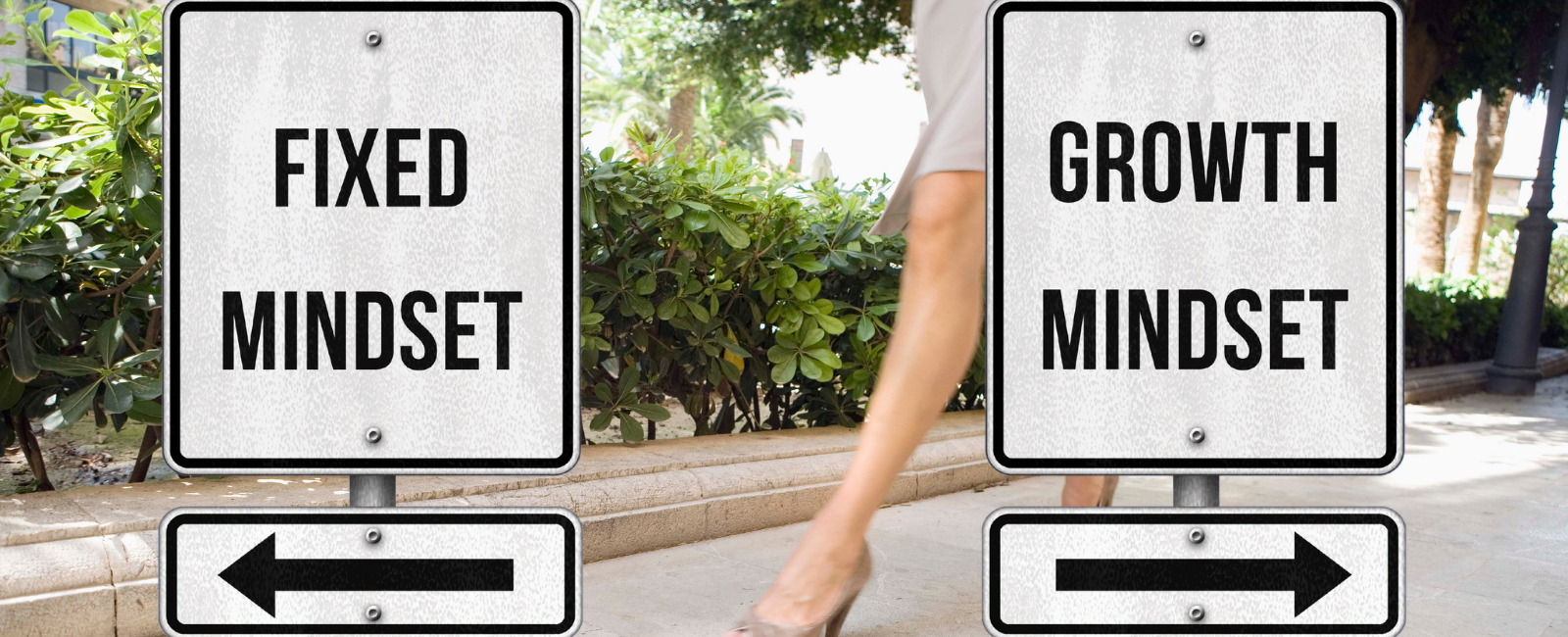It took me years to acknowledge how much my mindset controlled my decision or better non-decision making. My life evolved around adhering to strong biases, unhelpful beliefs, and plenty of self-deceit. Worst was my financial habits, conditioned by generations of women, strictly adhering to the “money is an ugly topic” mantra I had chosen to disengage myself from this rather unpleasant issue and to hope for the best.
Let´s take a closer look, and explore how much the mindset actually has the power to shape our lives, self-esteem, emotional balance, and resilience.
The Mindset Theory
The Mindset Theory: Our beliefs control the way we behave in response to life’s situations.
The mindset theory deals with the way we view ourselves, and the impact this has on our lives and our ability to succeed. At the same time, the mindset theory covers how we choose to pursue our goals, whether we give up when faced with failure or respond with more effort and dedication.
Mindsets are the belief people have about the nature of human characteristics.
Carol Dweck
The mindset shapes core beliefs and attitudes to specific issues, people, or situations and rules your actions, communication, attitudes, and self-concept ( a collection of beliefs about oneself or the ideal – self). The Mindset is key to shaping lives, self-esteem, and emotional balance.
Personal mindsets are nothing we are born with, but something we are conditioned to have, by parents, the societal and cultural environment, and pre-school experiences.
The Fixed and The Growth Mindset
Professor Dr.Carol Dweck, from Stanford University, one of the most acclaimed researchers in the field of mindset has developed theories about the growth and fixed mindset, and her books are worth a read.
Even, if you, like myself, do not agree with all her theories. Her analysis offers the most comprehensive answer to individual success, attitudes, self-esteem, confidence, and actions.
The Fixed Mindset
People with a fixed mindset, believe their qualities, like basic abilities, intelligence, talent, are fixed abilities and talents someone is born with and can not be changed. The fixed mindset holds the belief that bestowed talents and gifted luck lead to success, and effort is not required. Someone with a fixed mindset concludes to have a certain amount of talent, abilities, gifts, intelligence, good fortune etc. and that’s that. The fixed mindset is marked by closedness to change, oversensitivity to criticism, dysfunctional self-esteem, lack of resilience, fragility, excessive individualism, with a tendency to authoritarianism.
Intelligent women are prone to have a fixed mindset. For example, women have a tendency to use self-sabotaging attributes. Personal success is attributed to circumstances rather than their abilities, falling behind others or failure is attributed to being incompetent, a reason why many women reject a challenge or take risks, the fear to fail is dominating, this would destroy the ideal-self. Studies shows, girls have a higher craving for acceptance within the “tribe”, being obedient, adaptive, and quiet is praised, which results in being reluctant to change a status quo or to question a given situation.
The Growth Mindset
Individuals who believe their talents can be developed through hard work, developing strategies, and seeking input/advice have a growth mindset. They believe to have control of their abilities, intelligence, and talent. Research links the growth mindset to certain benefits, including greater comfort with taking personal risks and striving for more and stretching goals; higher motivation; the increased ability to develop strategies, resilience, enhanced brain development across a wide range of many other tasks; lower stress and anxiety levels, fewer depressions; better work relationships; improved and successful personal relationships and higher performance levels.

The Paradox Mindset
Life often involves the push and pull of various contradictory demands. Doctors and nurses need to provide the highest quality healthcare at the lowest cost; some wealth-owners want to spend their money to make changes in the world for the betterment of many but need to secure their wealth and create income to be able to do so.
Having to walk in two different directions, simultaneously, causes stress and anxiety. Yet new research found that these conflicts often work in our favor. Over a series of studies, psychologists found that people who learn to embrace, rather than reject, opposing demands show greater creativity, flexibility, and productivity. This might not sound very convincing, but having to deal with dual constraints seems to performance.
Sounds like an oxymoron? On the contrary, a long history of research shows that contemplating contradictions can break down assumptions, and shows wholly new ways of looking at things. Albert Rothenberg interviewed 22 Nobel laureates and studied accounts of historic world-changing people and found all had spend hours actively thinking about multiple opposites and irreconcilable ideas.
Ella Miron-Spektor, associate professor at INSEAD, found in a 20217 study on paradoxical cognition that employees with a paradox mindset had a large influence not only on their ability to cope with set tasks but also their ability to deal with problems. Contemplating contradictory ideas seemed to have freed their thinking from any limitations and they were better able to come up with creative solutions. People with a paradox mindset enjoy reconciling two opposites and get great satisfaction from their role.

The Money Mindset
The fixed mindset tricks women into having an unhealthy relationship with everything from numbers, to expenditure, and long-term financial planning. The female money mindset has been conditioned for centuries, mainly by men who sought to protect their dominance. In many cultures, male-dominated governments introduced all sorts of laws to prevent women from financial decision-making. Despite being wealth owners in their own right.
In some countries, common-law assigned a woman’s fortune either to the power of her father or in case of marriage she and her estate became the husband´s property. For centuries women did not see the purpose for a change of financial planning authority, despite being in charge of household spending and even the running of an estate, their wealth and their future were not theirs to own and control.
For centuries men were in charge of financial dealings and ultimately the financial industry. They made sure outsiders could not take power out of their hands so they developed a coded language, only ” insiders” could understand, outsiders were made to feel stupid and excluded. It seems the financial industry considers itself as a sophisticated old-boys club with restricted access.
Women have fought, for years for suffrage, equal rights, equal pay, and being able to lead a self-determined life with success in most countries. However when it comes to long-term financial planning outside the family women still remain eerily quiet and disengaged, and the trajectory is going upwards
Today women have a purpose, they outlive their husbands, earn their own money, build their own wealth, they will be the benefactors of the biggest intergenerational wealth transfer ever, children will not be able to finance their mother’s or sisters lives anymore, Laws of succession and inheritance laws have changed or will change in the future.
But here we are again it is the fixed mindset that creates havoc in women’s minds, it continues to prevent women from addressing financial matters in a way they should. It is the fixed mindset that ensures women still leave control over their financial future to men. It is time for women to put the spotlight on their money mindset and question if their beliefs are still beneficial to them.
Speed Read
- The Mindset Theory by Carol Dweck assigns two mindsets that rule our behavior, the Growth Mindset and the Fixed Mindset
- Individuals with a growth mindset believe their talents can be developed through hard work, by developing strategies, and seeking input/advice.
- Individuals with a fixed mindset believe their qualities, are bestowed talents and gifted luck, and effort is not required.
- Most people have a combination of both mindsets
- A third mindset, the paradox mindset, studied by Ellen Miron-Spekter, states, individuals with a paradox mindset do not act intuitive but contemplate contradictory ideas to find a solution.
- Individuals with a paradox mindset have a greater ability to cope with set tasks and are better at dealing with problems.
- Having a combination of all three mindsets seems to be most appealing and suitable for life in the 21st century, it allows us to have control of our lives.
- Shifting the mindset is not about changing one´s personality, breaking up with a partner, endangering a family, nullifying relationships, or annihilating the social background.
- Shifting the mindset is not without effort, needs goal-setting, courage, and self-observing.
- Shifting the mindset is worth the effort! It boosts self- esteem, resilience and confidence.
Shifting the Mindset
Having a growth mindset is appealing to most of us. It means having control over one´s life rather than being the victim of, or silent accomplice to a mindset shaped by others when we were too young to truly object.
People with a paradox mindset are the envy for most of us they feel comfortable with taking personal risks, have high motivation, own the ability to develop strategies, are resilient, and are less biased.
Nothing in life is black or white, most have fixed and a growth mindset. Both with a positive as much as a negative stimulus. While a growth mindset tells us that personal change or changing a situation is possible, the fixed mindset element helps to realize that certain responsibilities can not be neglected either, even if they are a burden. The fixed mindset assists to fit into families, societies, cooperations, and governmental systems.
It is not uncommon to have a growth mindset or paradox mindset for intelligence and a fixed mindset for personality, or vice versa. Attitude, opinions, behavior, and actions are ruled by the subconscious mind which is either dominated by a fixed or growth mindset.
Mindsets are enormously powerful, but it is also a fact they only exist in the mind. It is a male cliche that women change their minds frequently and at a whim! Women should make an effort and prove them right, only this once.
Everybody reaches a point in life where beliefs need to be questioned because they do not serve us anymore and have become toxic. The analytical part of our brain will tell us, that change is rife, but the fixed mindset will deny permission as this would entail leaving the comfort zone. The subconscious mind signals possible setbacks, irrational danger, and discomfort. An array of feelings surface, from humiliation to being exposed, from having to bear criticism to being kicked out of one´s social bubble. The fixed mindset signals a threat to life so nothing much is going to happen least of all any overdue changes.
Changing the mindset is not about changing one´s personality, or the creation of a different “you”, or breaking up with a partner, endangering a family, nullifying relationships, or annihilating the social background. Shifting your mindset is leaving the comfort zone, and taking control rather than being controlled.
Even if we were able to shift unhealthy beliefs, is not easy to keep up be critical about one´s misconceptions. We all have our fixed mindset triggers: facing a challenge, receiving criticism, or falling behind in comparison with others, the insecurity trap opens and we become defensive – and there it goes our newly acquired growth mindset. The fixed mindset takes over, we back away, blame others or the circumstances at worst we blame our own incompetence and surrender and never try again for fear of exposure and humiliation.
We need to develop the ability to identify and recognize the fixed mindset the minute it tries to surface and take control again. One way is to have a real conversation with your mindset, find out what it has to say about the change, and why you should feel threatened or be defensive. Argue with your mindset in an assertive manner, offer a truce, agree on ceasefire terms, and offer cooperation in your pursuit of a challenging goal.
Shifting the mindset is neither without effort nor is it possible without a purpose, will, goal-setting, courage, and some honest self-searching. There will be setbacks but it will not be doomsday, but a chance to learn and grow.
Remember, the mindset is an important tool, it affects our daily self-dialogue and reinforces our most intimate beliefs, attitudes, and feelings about ourselves. We have to choose carefully which one we give permission to dominate us.






